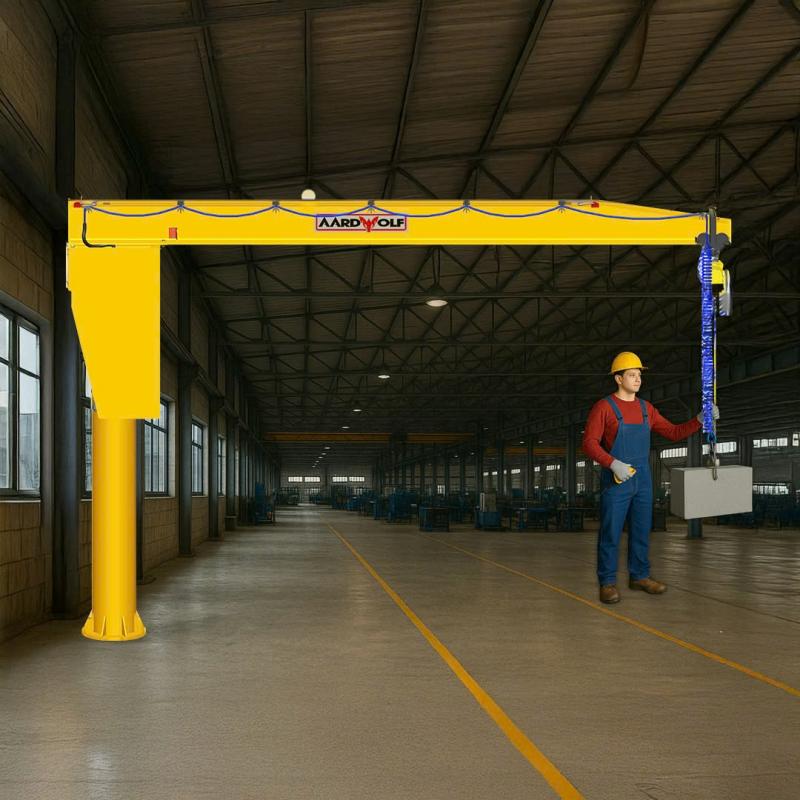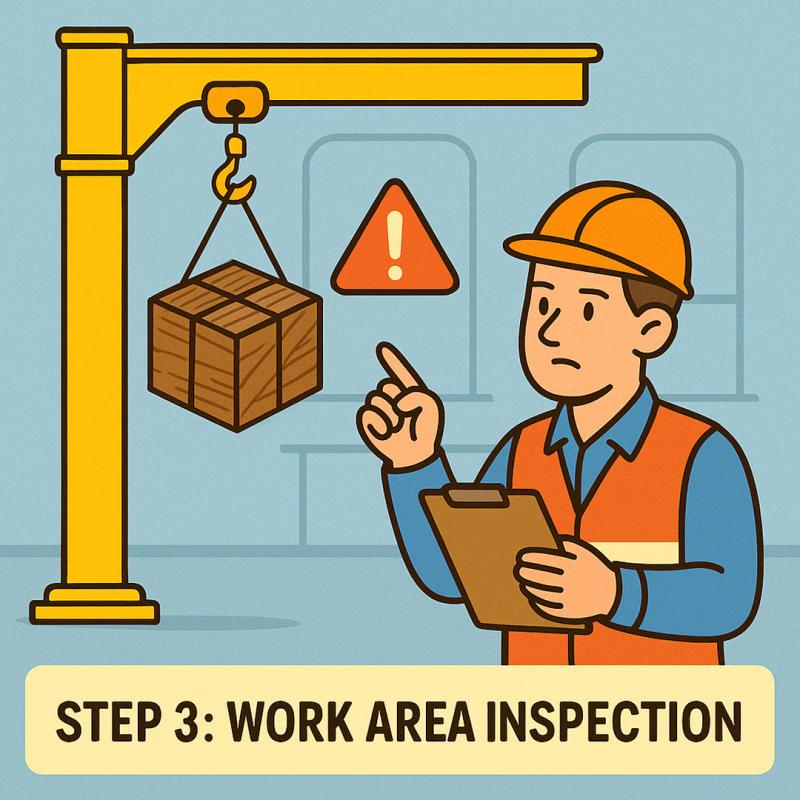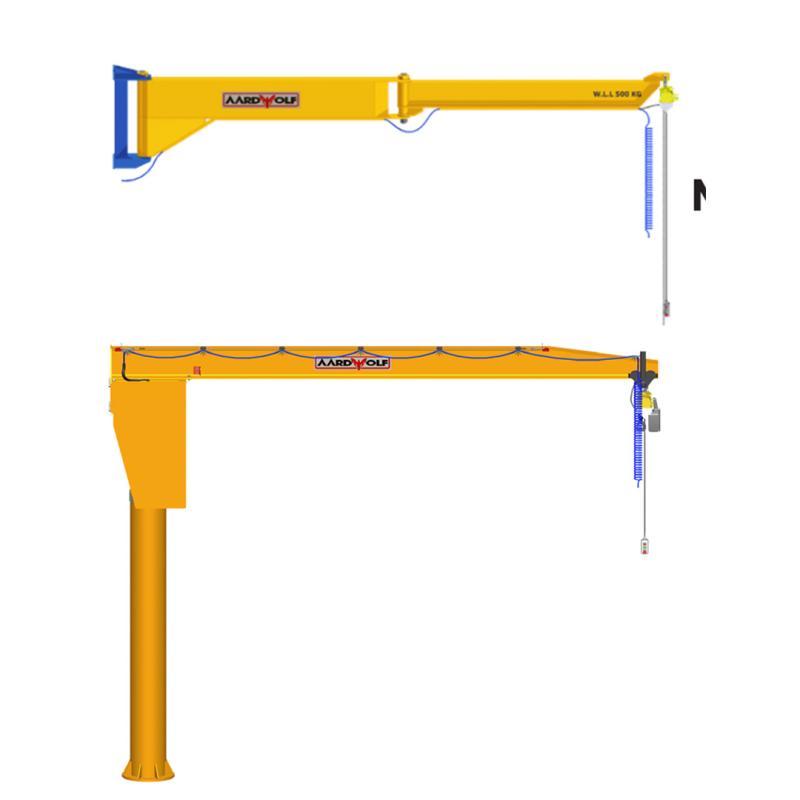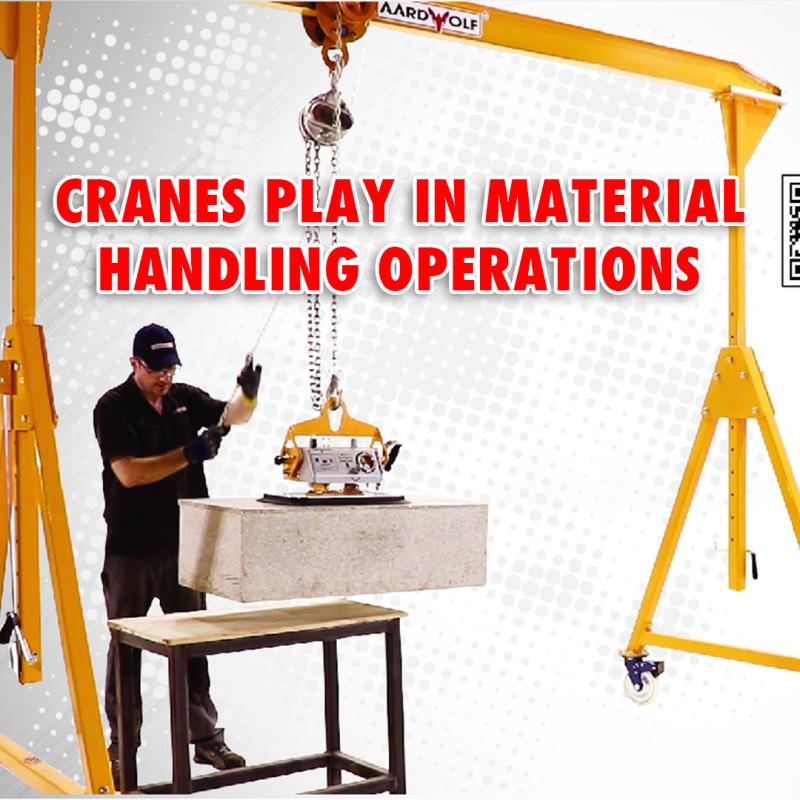



Jib cranes—including variations such as the freestanding jib crane, wall mounted jib crane, ceiling mounted jib crane, articulating jib crane, and pillar jib crane—are vital components for efficient lifting operations. However, to guarantee long-term reliability and worker safety, regular inspections and preventive maintenance are essential. This comprehensive jib crane inspection checklist is designed to help facility managers ensure that their jib cranes remain safe, efficient, and compliant with industry standards.
Discover more insights on How to apply a smart Jib Crane to enhance safety and productivity in your facility.
Regular inspection of jib cranes is more than just a compliance requirement. It ensures operational safety, reduces downtime due to unexpected failures, and extends the lifespan of your equipment.
Proper inspections prevent accidents caused by equipment malfunctions, safeguarding your workforce from potential harm. Regular checks detect early signs of wear, fatigue, or mechanical faults.
Routine inspections ensure your jib cranes adhere to industry standards and regulations. Compliance helps avoid penalties and legal implications while promoting operational integrity.
Proactive maintenance through regular inspections significantly extends crane longevity, optimizing your investment and maintaining operational consistency.
Explore detailed guidance on How to operate a smart jib crane safely and effectively.

The following checklist outlines critical components to examine during routine jib crane inspections:
Jib Arm Inspection
Look for visible signs of bending, cracks, or distortion.
Verify structural connections and weld integrity.
Support Column/Pillar
Inspect base anchors, bolts, and the integrity of the supporting structure.
Ensure the column or pillar shows no signs of corrosion or structural weakening.
Wall and Ceiling Mounts
For wall mounted jib cranes and ceiling mounted jib cranes, verify that mounting brackets and bolts remain tight, secure, and corrosion-free.
Refer to our in-depth guide on Types of Jib Cranes for Space-Efficient Operations to understand specific structural considerations.
Hoist and Trolley Mechanisms
Confirm smooth operation without unusual noises or jerks.
Inspect chains, ropes, or cables for wear, fraying, or damage.
Bearings and Pivot Points
Lubricate and inspect bearings regularly.
Check pivot points for ease of rotation and structural soundness.
Hooks and Load Attachments
Inspect hooks for deformation, cracks, or excessive wear.
Ensure safety latches are functional and secure.
For specifications related to mechanical components, see details with jib crane specification.

Limit Switches and Emergency Stops
Test limit switches for proper function to prevent overruns or collisions.
Verify the operational status of emergency stops and safety brakes.
Control Panel and Electrical Systems
Inspect wiring for damage or fraying.
Ensure control panel functionality, checking for responsiveness and accurate crane operation.
Confirm jib crane usage aligns with specified load capacities.
Regularly test cranes at maximum recommended loads to detect performance issues proactively.
Review operational specifics with Jib Crane step-by-step guide for installation and load testing.

Routine inspections are classified into several intervals, each with its specific focus:
Perform a brief visual inspection before each shift, focusing on:
Visual check of the jib arm and hook
Functional test of hoist controls
Checking for unusual noises or movements
Include more detailed mechanical and structural checks:
Comprehensive visual inspection of structural components
Lubrication of pivot points and bearings
Examination of hooks and lifting attachments
An in-depth, comprehensive inspection should include:
Structural integrity and load-bearing components
Electrical and mechanical systems
Functional testing under load conditions
Ensure consistency and thoroughness in inspections to maintain a safe working environment.
Despite meticulous maintenance and inspection, jib cranes eventually reach their service life limit. Replace your jib crane if you observe:
Severe structural deformation or irreparable damage.
Persistent mechanical failures despite repeated repairs.
Obsolete systems that no longer meet safety standards.
Learn more about selecting a replacement crane that aligns with your current needs in our article on crane application your facility.

Understanding The key differences between a crane and a jib crane helps determine if jib cranes continue to be the optimal solution for your facility. Key comparative advantages of jib cranes include:
Compact footprint ideal for limited-space operations
High precision handling capabilities
Easier maintenance and inspection routines compared to larger overhead cranes
Smart jib cranes integrate automation and IoT technology, dramatically improving inspection efficiency through predictive analytics and real-time monitoring. Smart cranes provide immediate alerts and diagnostics, helping maintenance teams address potential issues proactively.
For further insights, read our feature article: Wall Mounted Jib Cranes: Smart Tools in Tight Spaces.
Regular, systematic inspection of jib cranes is crucial for maintaining safety, compliance, and efficiency within your facility. Adhering to a structured inspection regime helps detect and address issues before they escalate, minimizing downtime and optimizing performance.
Implementing this comprehensive inspection checklist ensures your jib cranes continue delivering reliable, safe, and efficient material handling operations. Prepare your facility for long-term operational success by leveraging smart crane technologies and staying proactive with preventive maintenance strategies.
Ready to enhance safety and productivity in your workplace? Learn precisely How to apply a smart Jib Crane tailored specifically to your operational needs today.
1. How to operate a Jib Crane safely
3. Over brace jib crane wall mounted
5. Is a Jib Crane a Gantry Crane
6. Articulated Jib Crane Wall Mounted
8. Manual Counterbalance Crane
10. Over Braced Jib Crane Column Mounted
Sign up to receive the latest info on new Aardwolf products, special offers and more.
By signing up you agree to receive emails from Aardwolf with news, special offers, promotions and other information. You can unsubscribe at any time.